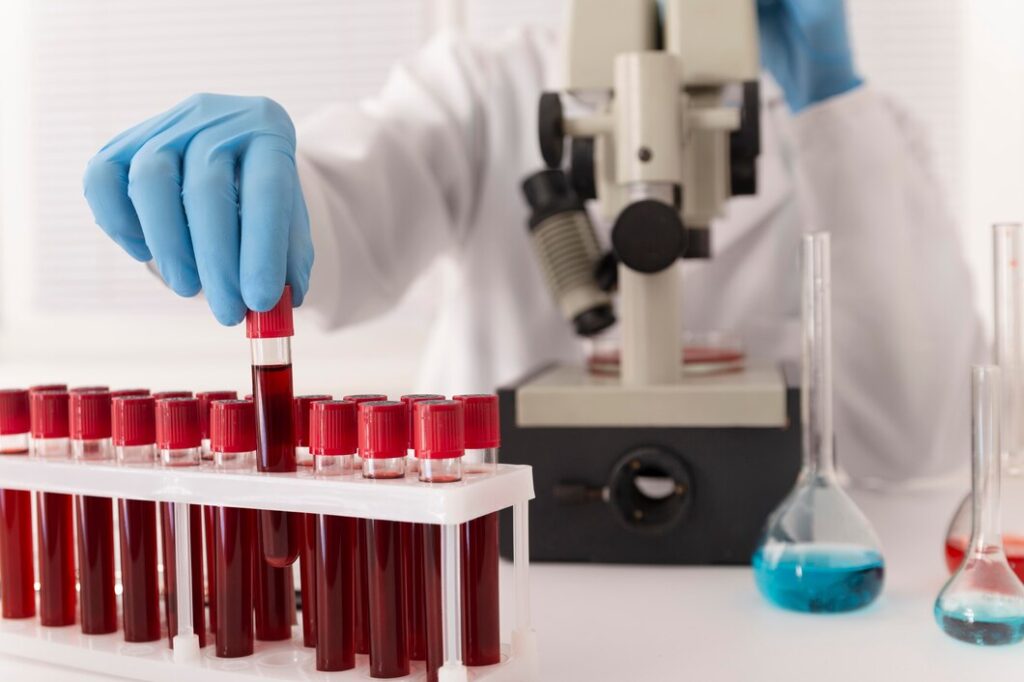Hypocalcemia;

Introduction
Hypocalcemia, a condition characterized by low levels of calcium in the blood, can lead to various health complications if left untreated. This article aims to provide a comprehensive overview of hypocalcemia, including its causes, symptoms, and treatment options.
Causes of Hypocalcemia:
Causes of hypocalcemia fall into three main categories: PTH deficiency, high PTH, and other factors. Let’s delve into each category separately.
1. PTH Deficiency:
- Postsurgical: Most commonly seen after thyroid or parathyroid surgery, this accounts for about 75% of cases.
- Autoimmune: Autoantibodies attacking the parathyroid glands are a primary cause, notably in autoimmune polyglandular syndrome type I.
- Abnormal Parathyroid Gland Development: Linked with various genetic disorders such as DiGeorge syndrome or Charge Syndrome.
- Parathyroid Gland Destruction: Rarely caused by conditions like granulomatous diseases or certain medications.
2. High PTH Levels:
- Vitamin D Deficiency: Results in secondary hyperparathyroidism due to decreased calcium absorption.
- Chronic Kidney Disease (CKD): Impairs phosphate excretion and vitamin D metabolism, leading to elevated PTH levels.
- Pseudohypoparathyroidism (PHP): A genetic disorder resulting in resistance to PTH action.
3. Other Causes:
- Pseudohypocalcemia: Caused by low albumin states, leading to falsely low serum calcium levels.
- Acidosis/Alkalosis: pH levels affect calcium binding to albumin, influencing ionized calcium levels.
- Acute Pancreatitis: Can induce hypocalcemia due to calcium precipitation.
- Severe Sepsis/Critical Illness/Trauma: Various mechanisms, including impaired PTH secretion and magnesium dysregulation, can lead to hypocalcemia.
- Hypomagnesemia/Hypermagnesemia: Both low and high serum magnesium levels can affect PTH secretion, leading to hypocalcemia.
- Acute Hyperphosphatemia: Uncommon, but can cause hypocalcemia due to calcium phosphate deposition.
- Drugs: Certain medications like bisphosphonates or chemotherapeutic agents can induce hypocalcemia.
- Massive Blood Transfusion: Blood transfusion can decrease ionized calcium due to citrate binding.
- Pregnancy: Hypocalcemia during pregnancy can result from various factors including poor diet or underlying diseases.
- Osteoblastic Metastasis: Certain cancers, like prostate cancer, can cause hypocalcemia due to increased osteoblastic activity.
- Nutritional Deficiencies: Inadequate intake of calcium-rich foods can result in hypocalcemia.
- Vitamin D Deficiency: Vitamin D plays a crucial role in calcium absorption, and its deficiency can lead to low calcium levels.
- Kidney Disorders: Conditions such as chronic kidney disease can impair the body’s ability to regulate calcium levels.
- Hypoparathyroidism: Decreased secretion of parathyroid hormone (PTH) can cause a decrease in calcium levels.
- Medications: Certain medications, including diuretics and antiepileptic drugs, can interfere with calcium metabolism, leading to hypocalcemia.
Symptoms of Hypocalcemia
- Tingling Sensations: Numbness or tingling in the fingers, toes, or around the mouth.
- Muscle Cramps: Painful spasms or cramps, particularly in the hands and feet.
- Carpopedal Spasm (Trousseau’s Sign) : Reflects heightened neuromuscular excitability and manifests as hand spasms when a blood pressure cuff is inflated above systolic pressure.
- Chvostek’s Sign: Another indication of increased neuromuscular excitability, elicited by tapping the facial nerve resulting in facial muscle contractions.
- QTc Prolongation: Prolonged QT interval on an ECG, increasing the risk of ventricular tachycardia like torsades de pointes, which can be fatal.
- Fatigue: Feelings of weakness or fatigue, often accompanied by muscle aches.
- Irregular Heartbeat: Abnormal heart rhythms, palpitations, or chest pain.
- Seizures: In severe cases, hypocalcemia can lead to seizures or convulsions.
Diagnosis :
- Blood Tests: Measurement of calcium levels in the blood, along with tests for vitamin D and PTH.
- Electrocardiogram (ECG): Assessment of heart function to detect any abnormalities associated with low calcium levels.
- Bone Density Scan: Evaluation of bone health to assess calcium storage and turnover.
Treatment :
Treatment strategies for hypocalcemia depend on symptom severity, etiology, and patient condition. These approaches encompass:
- Intravenous Calcium:
- Administered in severe cases or when QTC intervals are prolonged.
- Options include calcium gluconate or calcium chloride given as a short infusion followed by continuous infusion if needed.
- Calcium gluconate is preferred due to lower risk of tissue necrosis upon extravasation.
- Avoid alkaline or phosphorus-containing solutions to prevent calcium salt precipitation.
- Oral Calcium:
- Suitable for mild symptoms.
- Calcium carbonate or calcium citrate are common choices.
- Aim for 1500 to 2000 mg of elemental calcium daily, divided into 2 to 3 doses to minimize gastrointestinal and renal losses.
- Consider vitamin D supplementation for better absorption, especially in scenarios with vitamin D deficiency.
- Recombinant Human Parathyroid Hormone (rhPTH):
- Used for chronic hypoparathyroidism and select genetic conditions with low PTH levels.
- Limited by cost and availability, with potential long-term adverse effects.
- Other PTH preparations are under development for chronic hypocalcemia management.
Treatment of Hypocalcemia 2° to Systemic Disease:
- Postsurgical Hypoparathyroidism: Prophylactic calcium post-thyroidectomy or parathyroidectomy can prevent severe hypocalcemia, with close monitoring and gradual tapering of replacement calcium.
- Hypomagnesemia: Correct serum magnesium levels before addressing hypocalcemia.
- Vitamin D Deficiency: Replete vitamin D before correcting hypocalcemia.
- Chronic Kidney Disease (CKD): Address CKD-related hypocalcemia with activated vitamin D, such as calcitriol, and manage vitamin D deficiency with appropriate supplementation. Counsel patients on nephrolithiasis risk reduction strategies if indicated.
Summary:
Hypocalcemia can have serious implications for overall health and well-being, but with timely diagnosis and appropriate treatment, the condition can be effectively managed.
Read another article:

